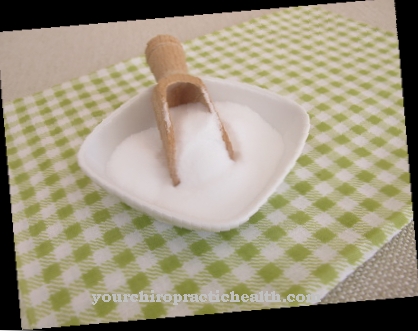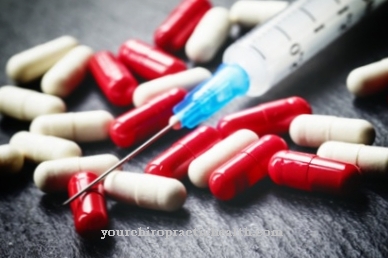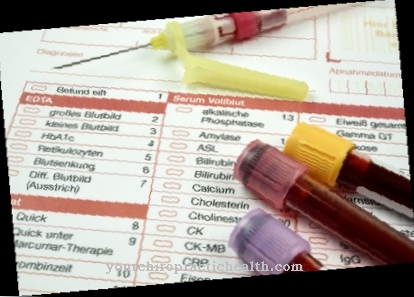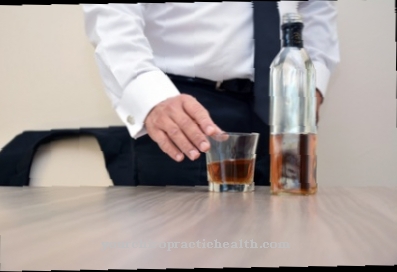Ephedrine is chemically an alkaloid and has a stimulating effect on the organism. It is used as a drug for respiratory diseases, low blood pressure and, to a lesser extent, also for narcolepsy (sleeping sickness). Unfortunately, the stimulating properties of ephedrine also lead to its abuse as a party drug.
What is ephedrine?

Ephedrine is obtained from the plants of the genus Ephedra. Is known z. B. the sea ravage, which is enjoyed as Mormon tea or Ma-Huang.
Ephedrine is something called an alkaloid. Although alkaloids are not a uniform class of substances, they have some common properties. All alkaloids are products of the secondary metabolism of plants and fungi, but also of animals. They contain nitrogen and have a characteristic influence on the animal or human body.
Most of them are poisonous and have a bitter taste. Ephedrine acts as an indirect sympathomimetic on the sympathetic system and on this basis develops its characteristic stimulating properties, which can have both positive and negative effects on the organism.
Pharmacological effect
The influence of Ephedrine is based on the fact that in the sympathetic nervous system it causes the increased release of noradrenaline from the presynaptic nerve endings with a simultaneous inhibition of the reuptake in the synapses.
This increases the concentration of noradrenaline in the synaptic gap. This means that ephedrine indirectly increases the effects of norepinephrine. Norepinephrine is a stress hormone that normally provides short-term energy supply in an emergency. In this case, fat burning is boosted and the breakdown of muscle protein is stopped. At the same time, the increased need for oxygen in this situation must of course also be ensured by expanding the bronchi, stimulating the heart rate and increasing blood pressure.
Other physical functions that interfere with this emergency situation, such as eating or digestive activities, are restricted. Once the emergency is over, these physical reactions are no longer necessary and are usually stopped immediately. The norepinephrine level in the synaptic cleft drops and the body calms down. Ephedrine causes these reactions even in an emergency situation by increasing the noradrenaline concentration.
These reactions only subside when ephedrine is also broken down. Ephedrine thus initiates physical reactions that are not necessary in the respective situation, but can still have positive, but also negative effects on the body.
Medical application & use
The positive effects of Ephedrine on the body are also reflected in its range of applications. Ephedrine is used in the treatment of bronchial asthma.
There used to be an over-the-counter preparation on the market. However, this was discontinued as a party drug due to the risk of abuse. Ephedrine is also used in nasal sprays to decongest the nasal mucous membranes in the event of a cold. Another area of application is the treatment of low blood pressure.
Ephedrine is used especially for hypertension after epidural anesthesia. Due to the increase in the basal metabolic rate, ephedrine is also used to combat obesity. The organism's higher energy requirement stimulates fat burning.
The anabolic effect in terms of increased protein build-up also increases the energy requirement. The increased energy supply also has positive effects in the treatment of narcolepsy, the sleeping sickness. Today, however, the use of ephedrine is limited to special areas of application because the risk-benefit ratio is unfavorable.
Risks & side effects
Too frequent or uncontrolled use of Ephedrine however, it can lead to negative physical consequences. As already mentioned, ephedrine increases the concentration of norepinephrine, a stress hormone for short-term exceptional situations.
This leads to high blood pressure, increased heart rate, but also to increased performance in sports. Ephedrine is also used as a doping agent in sports. In the long term, the use of ephedrine can then lead to cardiovascular diseases. Since ephedrine is euphoric, it is often used as a party drug with all its negative effects. Long-term use poses a risk of developing chronic diseases and drug addiction.
If ephedrine is used in high concentrations, it can lead to restlessness, anxiety, delirium, hallucinations and tremors. Headaches, cramps, and nausea are also typical symptoms. As with other drugs, prolonged use at high concentrations can lead to drug addiction.



.jpg)








.jpg)



.jpg)










.jpg)
